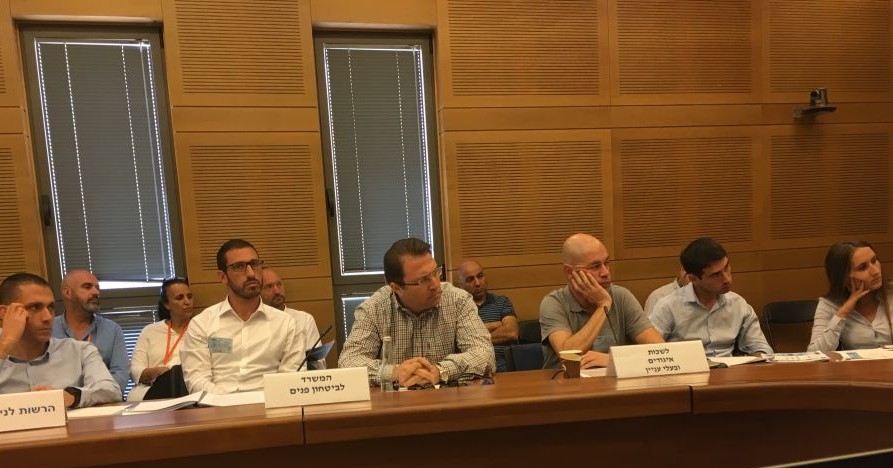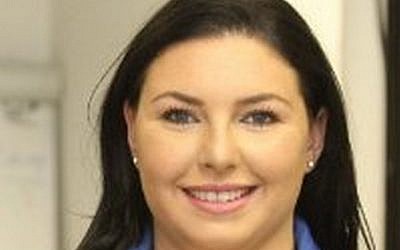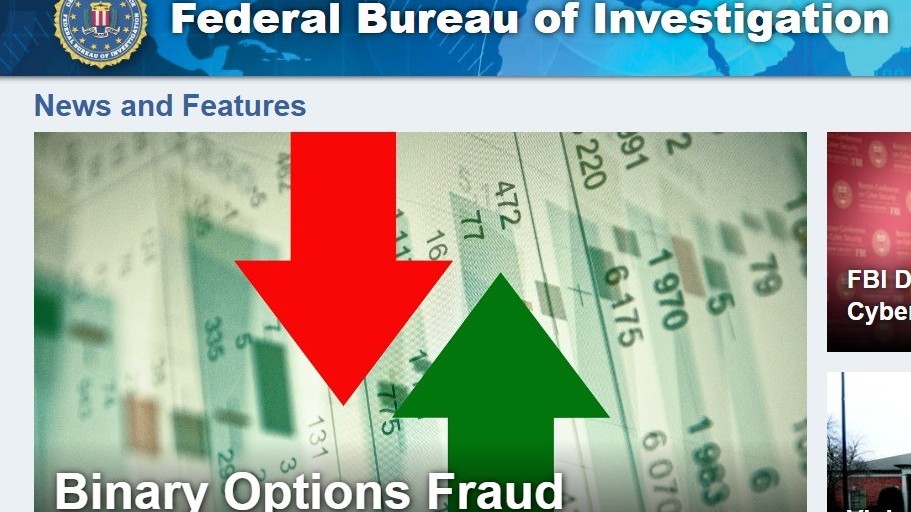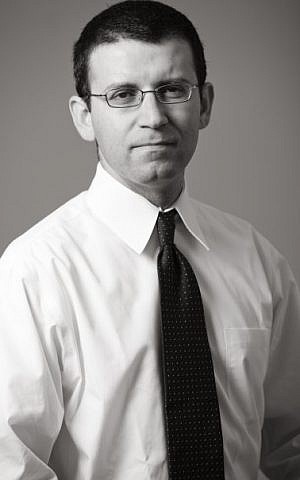Agents visit platform provider SpotOption, and question binary options company owner Yossi Herzog

While Israeli authorities have failed to convict or even indict anybody for a decade of global binary options fraud, the FBI has taken on the work, and agents flew here to question several alleged binary options fraudsters in recent days.
FBI agents, accompanied by Israeli police officers, visited the Ramat Gan offices of the major binary options platform provider SpotOption on January 8. The company’s owner, Pini Peter, told The Marker business daily that the visit was not a raid, that the FBI had taken files from SpotOption’s computers, and that he had cooperated fully with the US authorities.
The FBI also questioned Yossi Herzog, the owner of Yukom Communications Ltd., an Israeli company that has run the web sites Bigoption.com and Binarybook.com. The CEO of Herzog’s company, Lee Elbaz, was arrested by the FBI in September when she landed at JFK airport, and remains under house arrest in the US until her trial. She is suspected of wire fraud and conspiracy to commit wire fraud, violations that can carry up to 20 years in prison each.

In the FBI affidavit explaining her arrest, Yukom Ltd. was accused of illegally defrauding thousands of investors, including Americans, out of tens of millions of dollars.
Spotoption, in the same affidavit, was accused of conspiring with Elbaz to manipulate the outcome of trades. Herzog’s lawyer Haim Levy confirmed to The Marker that Herzog had been questioned by the FBI, adding that his client insists that both he and Elbaz are innocent.
Meanwhile, the British Financial Conduct Authority on January 12 published a list of 94 companies offering binary options to UK investors without authorization. A large portion of the companies on the list until recently operated from Israel.

The Israel Police, Israel Securities Authority and FBI all declined to comment on the FBI’s visit to Israel.
The FBI told The Times of Israel last February that it had begun investigating binary options in earnest.
“Our agents are going to look under every rock and stone,” FBI Supervisory Special Agent Milan Kosanovich said in a telephone interview, speaking a month after law enforcement officials from North America and Europe had gathered for an emergency summit on binary options fraud in The Hague.
The FBI’s visit to Israel comes under the ongoing exchange of information and judicial cooperation that Israel maintains with many governments abroad, including the United States.

Thousands of alleged fraudsters, no prosecutions
Some observers regard the recent FBI actions in Israel as reflecting poorly on the Israeli police and justice system.
Nimrod Assif, an Israeli lawyer who represents victims of binary options and forex fraud, said that he views the FBI’s intervention here as “a direct result of Israel’s failure to enforce the law.”
Assif told The Times of Israel that he has been trying for years to alert the Israeli police to binary options and forex fraud, to no avail.
“I’ve complained to the police on behalf of at least ten victims from all over the world. I provided the police with the names of the Israeli companies that are behind the binary options websites, the addresses in Israel of their offices, and the names of the Israelis behind these companies,” he said. “At least once, I gave the police the phone number of a former employee who was willing to give evidence, and another time I gave the police concrete information on one of the main issues that the FBI is now investigating. As far as I know, the police have done nothing with all these complaints and information.”
Binary options is a fraudulent industry that flourished in Israel for over ten years and employed thousands of Israelis. Only a handful of binary options operatives have been arrested and not a single one has been indicted, despite the fact that the fraudulent industry was estimated by foreign law enforcement bodies to bring in $5 billion to $10 billion a year.
On October 23, as a result of pressure from foreign governments as well as The Times of Israel’s reporting on the issue, the Knesset unanimously voted to ban the entire Israeli binary options industry. The law goes into effect January 26.
As a result of heavy lobbying from the online trading industry, the original bill was constricted and the law does not ban unregulated and fraudulent forex, CFD and cryptocurrency companies that continue to target investors abroad.
Many Israeli binary options companies have moved their call centers abroad, while some continue to operate call centers and online trading platforms from within Israel, offering forex, CFDs, cryptocurrencies or other financial products in lieu of binary options.
A ‘criminal offense’
On January 12, Britain’s securities regulator, the Financial Conduct Authority, published a list of 94 companies offering binary options to UK investors without authorization.
“Since January 3rd 2018, firms involved in binary options trading in the UK have been required to be authorized by the FCA,” stated a press release on the FCA’s website.
“Firms that are not authorised by the FCA and continue with binary options activities beyond that date will be acting in breach of section 19 of the Financial Services and Markets Act 2000 (FSMA), which is a criminal offense,” the FCA continued.
“This list is based upon information that the FCA has received from consumers, partner agencies and from monitoring the binary options market. Many of these firms claim to be based in the UK but the FCA believes that most of the addresses they provide are false and that the firms are actually based overseas.”
Many of the names on the list are companies that have operated from Israel. Many of those websites are still up and running. It is unclear if they maintain the same ownership and operate from abroad, or if they continue to operate from Israel, albeit quietly.
Among the web sites on the UK list are IvoryOption.com and 72option.com. Until recently, those two sites were operated from offices of Liantech Ltd. and Holy Top Media Ltd. in Ramat Gan. Both of the latter companies are owned by Anton Senderov and Lior Babazara. Holy Top Media continues to advertise for workers on Israeli job boards. It is seeking salespeople to relocate abroad to Ukraine and is also seeking cryptocurrency salespeople for its Israeli office.
The ultimate beneficial owner of Option500.com, another company on the list, was, until recently, Ofir Eyal Bar, according to documents seen by The Times of Israel.
TitanTrade.com, another website on the list, is the subject of a lawsuit filed in May 2017 by a Polish woman who lost $95,000 to the company. According to the lawsuit, filed by attorneys Yossi Haezrachy and Nir Friedman, TitanTrade was operated by GTech Media Development Ltd (formerly MIG G.A. Financial Marketing Ltd). GTech’s director and owner is a man by the name of Guy Galboiz. In his writ of defense, Galboiz’s lawyers denied that GTech is connected to TitanTrade.
Ubinary.com, another website on the FCA list, was until recently run from a call center at Hamasger 9 in Tel Aviv, by a company called Gambol Online Ltd., which is closely associated with Toyga Media Ltd and the UFX.com forex trading website.
In April 2017, Bank Hapoalim informed Gambol that it had decided to close its account because the company’s binary options activity had subjected the bank to increased anti-money laundering scrutiny from banks abroad. Gambol Online sued the bank to keep the account open.

Gambol stated in the lawsuit complaint that it had offered call center services, customer service, development, technical support and marketing services to the binary options websites ubinary.com and ucapital.com. It claimed to have had 160 employees at its height.
The company told Bank Hapoalim that Gambol Online’s beneficial owners are Sa’ar Pilosof (18.04 percent), Haim Toledano (18.04%) and a company called Positive Approach LLP, which owned 28.36% of the binary options firm.
According to the Isle of Man corporate registry, the address for Positive Approach LLP is Hamarganit street 3 in Tel Mond, Israel. According to Israel’s corporate registry, the address also belongs to Gil Hod, an Israeli businessman best known for his close association with Israeli tycoon Koby Maimon.
As reported by The Times of Israel
